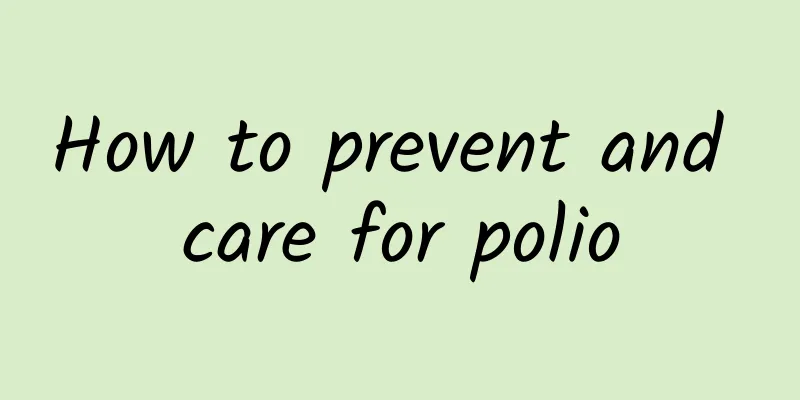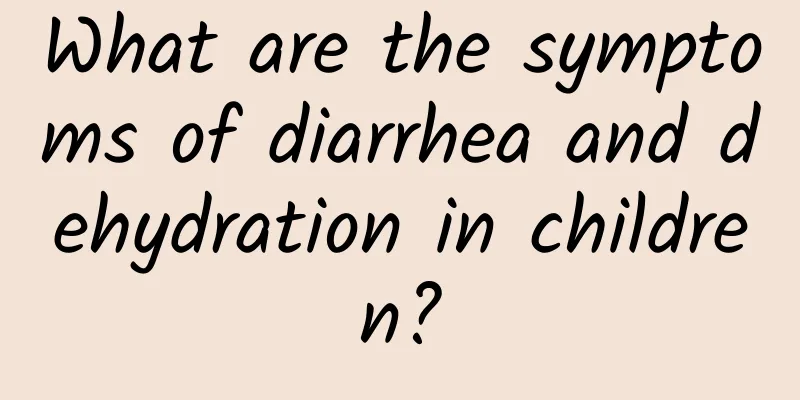How long does it take for neonatal jaundice to subside?

|
Neonatal physiological jaundice: Newborns begin to develop jaundice 2-3 days after birth, which is most obvious after 4-5 days and disappears naturally after 7-14 days. Generally, they are in good condition and have no adverse reactions. This is called "physiological jaundice". Premature babies have more immature liver function, so jaundice will appear later, around the 3rd or 4th day, and will last longer. Jaundice in premature babies can last for 14 days or longer. Neonatal breast milk jaundice: Jaundice starts 4-7 days after birth and lasts for about 2 months. It is mainly characterized by increased unconjugated bilirubin and has no clinical symptoms. Neonatal pathological jaundice: Jaundice appears early, within 24 hours after birth. Jaundice is persistent, and jaundice persists or even deepens 2-3 weeks after birth, or it is relieved and then deepens. Severe jaundice is golden yellow or jaundice is all over the body, with obvious jaundice on the palms and soles, or serum bilirubin is greater than 12-15 mg/L. Accompanied by anemia or pale stool color. There are symptoms such as abnormal body temperature, poor appetite, vomiting, etc. If it is physiological jaundice, no treatment is needed. If it is pathological jaundice, the main treatment is blue light, so you must go to the hospital's pediatric department for treatment and retest the transcutaneous bilirubin to understand the treatment effect. Regardless of the cause of pathological jaundice, severe cases can cause kernicterus, which has a poor prognosis. In addition to causing damage to the nervous system, severe cases can cause death. How to deal with jaundice in children Pay attention to the color of your baby's stool: Pay attention to the color of your baby's stool. If there is a problem with the liver or bile duct, the stool will turn white, but it will not turn white suddenly, but will become lighter and lighter. If the body suddenly turns yellow again, you must take it to the doctor. This is because under normal circumstances, the bilirubin processed by the liver will be excreted from the bile duct to the intestine, so the stool has color. However, when the bile duct is blocked, bilirubin accumulates in the liver and cannot be excreted, which will cause liver damage. Observe your baby's daily life: If you feel that your baby looks more and more yellow, has poor spirits and appetite, or has unstable body temperature, drowsiness, and is prone to screaming and crying, you must go to the hospital for examination. Carefully observe the changes in jaundice: jaundice starts from the head and fades from the feet, and the eyes are the first to turn yellow and the last to fade, so you can start with the eyes. If you don't know how to look, experts suggest that you can press any part of the body. As long as the skin you press turns white, it doesn't matter. If it turns yellow, you should pay attention. Breastfeed frequently: If it is proven that jaundice is caused by insufficient feeding, the mother must feed the baby frequently, because milk secretion is a normal physiological reaction. Frequent breastfeeding will stimulate the secretion of lactogen and more milk will be secreted. Never supplement with water or sugar water because you think the baby is not eating enough or because of persistent jaundice. |
<<: What is neonatal jaundice? Will jaundice recur?
>>: Why do newborns have jaundice after birth?
Recommend
How to treat hand, foot and mouth disease
Hand, foot and mouth disease is a headache for ma...
Is diarrhea and eczema in children an allergy? Revealing the typical symptoms of allergies in children
Diarrhea in children is a common disease in the d...
What tests can be used to exclude breast milk diarrhea?
Which items can be used to check for breast milk ...
What to eat to prevent jaundice
What can I eat to prevent jaundice? Jaundice is a...
What kind of milk is best to drink in daily life? Drinking these 5 kinds of milk is good for your health
The best milk is mainly pasteurized milk, room te...
What should I do if my 6-month-old baby has a cough and runny nose? What are the common causes of a 6-month-old baby's cough and runny nose?
For a 6-month-old baby with a cough and runny nos...
How many days should children with pneumonia be given intravenous drip?
Pediatric pneumonia patients usually receive infu...
What are the symptoms of patent ductus arteriosus? What are the treatments for patent ductus arteriosus?
We all have experienced illness and suffered from...
Can children with diarrhea take Enteritis Ning tablets?
Whether children with diarrhea can take Changyan ...
Introduction to the latest progress in the treatment of Kawasaki disease
Kawasaki disease is a very common disease in life...
What is the correct way to treat jaundice in children?
Everyone knows that sunbathing is good for people...
What are the causes of neonatal pathological jaundice?
What are the causes of neonatal pathological jaun...
What are the preventive measures for acute laryngitis in children?
What are the preventive measures for acute laryng...
What should children eat to treat cold and cough? How should children take medicine for cold and cough?
Treatment is generally divided into general treat...
What causes jaundice rupture?
Jaundice generally does not rupture. Rupture of j...









